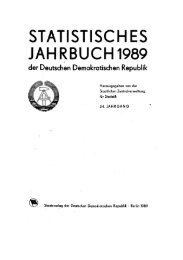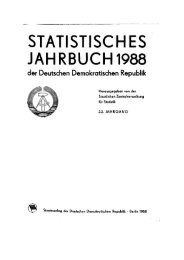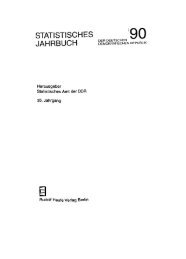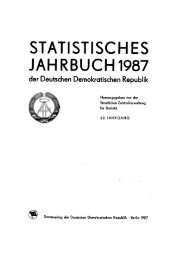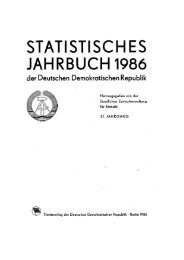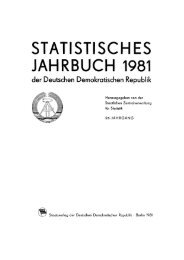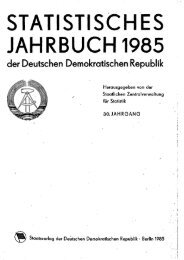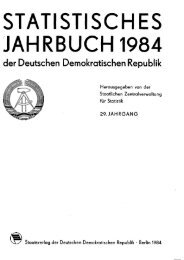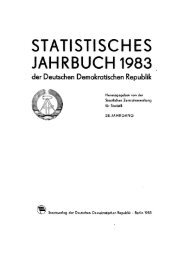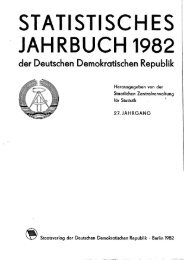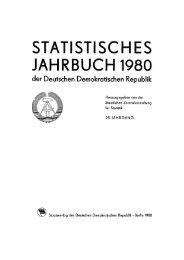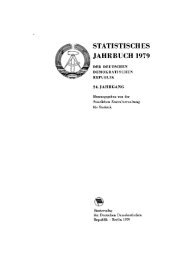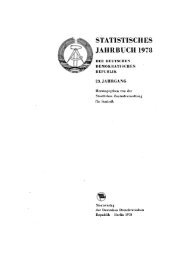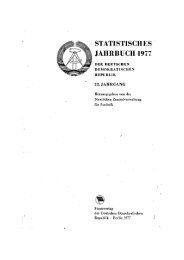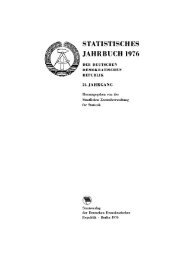INDIAN AFFAIRS 665 INDIAN AFFAIRS. Department of Indian Affairs.—By section 5 of the British North America Act, 1867, the Indians of <strong>Canada</strong> and the lands reserved for them came under the control of the Dominion Government, and in 1873 an Act of the Canadian Parliament (R.S., c. 81) provided that the Minister of the Interior should be Superintendent General of Indian Affairs and as such have the control and management of the lands and property of the Indians in <strong>Canada</strong>. The aim of the Department of Indian Affairs is the advancement of the Indians in the arts of civilization, and agents have been appointed to encourage the Indians under their charge to settle on the reserve and to engage in industrial pursuits. Tables 11-18, compiled from the Reports of the Department, give for the years named particulars respecting population, religion, education, agriculture and financial status. Table 18 shows that during the year 1919 crops to the value of $3,462,147 were raised by the Indians; the corresponding value in 1918 was $3,142,046. Educational advantages are provided for the Indians in day, boarding and industrial schools, and for educational purposes appropriations were made by Parliament for the year 1919-20, amounting to $1,057,663. Several bands of Indians assist, and during the fiscal year 1919-20 the sum of $41,240 was available from this source. As shown in Table 14, the total number of Indian children enrolled as attending school during the fiscal year 1919 was 12,196, and the average attendance was 7,629. The total parliamentary appropriation of the Indian Department for the year 1919-20 is $1,741,563. On March 31, <strong>1920</strong>, the Indians had to the credit of their trust funds $10,900,057, derived from sales of lands and timber and from rentals of grazing and other lands. The amount named represents an increase of $1,661,270 over that of the preceding year. 11.—Indian Population in <strong>Canada</strong>, by Provinces, 1911-1917. Provinces. 1911. 1912. 1913. 1914. 1915. 1916. 1917. Prince Edward Island Nova Soctia Quebec Ontario Manitoba Saskatchewan Alberta British Columbia Yukon Northwest Territories 292 2,026 1,802 11,462 22,496 6,104 9,439 8,088 24,581 3,500 13,871 Indians in <strong>Canada</strong> 103,661 300 1,969 1,903 12,817 26,393 10,373 9,545 8,113 24,781 3,500 5,262 101,956 292 2,018 1,920 12,842 26,077 10,822 9,699 9,228 25,172 1,389 8,030 106,490 288 2,050 1,906 12,935 26,419 10,290 9,779 8,281 25,370 1,528 4,928 103,774 288 2,042 1,862 13,174 26,162 10,798 9,775 8,500 25,399 1,528 4,003 103,531 302 2,119 1,874 13,348 26,305 11,935 9,962 8,682 25,737 1,528 3,769 105,561 292 2,031 1,846 13,366 26,411 11,583 10,646 8,837 25,694 1,528 3,764 105,998 4,600 4,600 3,447 3,447 3,447 3,296 3,296
666 ADMINISTBA TION 12. Distribution of Indian Population by Age, Sex and Province, with Births and Deaths, by Provinces, 1917. Provinces. Under 6 years. 6 to 15 years. 16 to 20 years. Provinces. Males. Females. Males. Females. Males. Females. Prince Edward Island 20 178 145 974 1,743 1,074 1,075 569 1,993 134 30 217 147 1,021 1,783 1,124 1,061 602 1,931 133 33 200 161 894 2,212 1,181 1,053 585 2,152 206 28 187 156 910 2,143 1,048 1,013 538 2,132 196 19 136 70 576 1,512 861 467 306 1,320 78 17 134 20 178 145 974 1,743 1,074 1,075 569 1,993 134 30 217 147 1,021 1,783 1,124 1,061 602 1,931 133 33 200 161 894 2,212 1,181 1,053 585 2,152 206 28 187 156 910 2,143 1,048 1,013 538 2,132 196 19 136 70 576 1,512 861 467 306 1,320 78 57 20 178 145 974 1,743 1,074 1,075 569 1,993 134 30 217 147 1,021 1,783 1,124 1,061 602 1,931 133 33 200 161 894 2,212 1,181 1,053 585 2,152 206 28 187 156 910 2,143 1,048 1,013 538 2,132 196 19 136 70 576 1,512 861 467 306 1,320 78 542 20 178 145 974 1,743 1,074 1,075 569 1,993 134 30 217 147 1,021 1,783 1,124 1,061 602 1,931 133 33 200 161 894 2,212 1,181 1,053 585 2,152 206 28 187 156 910 2,143 1,048 1,013 538 2,132 196 19 136 70 576 1,512 861 467 306 1,320 78 1,416 20 178 145 974 1,743 1,074 1,075 569 1,993 134 30 217 147 1,021 1,783 1,124 1,061 602 1,931 133 33 200 161 894 2,212 1,181 1,053 585 2,152 206 28 187 156 910 2,143 1,048 1,013 538 2,132 196 19 136 70 576 1,512 861 467 306 1,320 78 794 20 178 145 974 1,743 1,074 1,075 569 1,993 134 30 217 147 1,021 1,783 1,124 1,061 602 1,931 133 33 200 161 894 2,212 1,181 1,053 585 2,152 206 28 187 156 910 2,143 1,048 1,013 538 2,132 196 19 136 70 576 1,512 861 467 306 1,320 78 490 20 178 145 974 1,743 1,074 1,075 569 1,993 134 30 217 147 1,021 1,783 1,124 1,061 602 1,931 133 33 200 161 894 2,212 1,181 1,053 585 2,152 206 28 187 156 910 2,143 1,048 1,013 538 2,132 196 19 136 70 576 1,512 861 467 306 1,320 78 303 20 178 145 974 1,743 1,074 1,075 569 1,993 134 30 217 147 1,021 1,783 1,124 1,061 602 1,931 133 33 200 161 894 2,212 1,181 1,053 585 2,152 206 28 187 156 910 2,143 1,048 1,013 538 2,132 196 19 136 70 576 1,512 861 467 306 1,320 78 1,327 Northwest Territories.... 20 178 145 974 1,743 1,074 1,075 569 1,993 134 30 217 147 1,021 1,783 1,124 1,061 602 1,931 133 33 200 161 894 2,212 1,181 1,053 585 2,152 206 28 187 156 910 2,143 1,048 1,013 538 2,132 196 19 136 70 576 1,512 861 467 306 1,320 78 64 Total 7,905 8,019 8,677 8,351 5,345 5,144 7,905 8,019 8,677 8,351 5,345 Provinces. 21 to 65 years. 65 years upwards. Births. Deaths. Provinces. Males. •. Females. Males. Females. Births. Deaths. Prince Edward Island 65 433 327 1,934 5,107 2,071 2,015 1,292 5,389 370 58 397 306 1,930 5,292 2,307 2,233 1,273 5,297 79 14 79 51 247 470 321 250 62 528 50 8 70 35 224 524 397 363 123 567 48 46 67 230 673 406 458 340 618 15 65 65 433 327 1,934 5,107 2,071 2,015 1,292 5,389 370 58 397 306 1,930 5,292 2,307 2,233 1,273 5,297 79 14 79 51 247 470 321 250 62 528 50 8 70 35 224 524 397 363 123 567 48 46 67 230 673 406 458 340 618 15 70 65 433 327 1,934 5,107 2,071 2,015 1,292 5,389 370 58 397 306 1,930 5,292 2,307 2,233 1,273 5,297 79 14 79 51 247 470 321 250 62 528 50 8 70 35 224 524 397 363 123 567 48 46 67 230 673 406 458 340 618 15 200 65 433 327 1,934 5,107 2,071 2,015 1,292 5,389 370 58 397 306 1,930 5,292 2,307 2,233 1,273 5,297 79 14 79 51 247 470 321 250 62 528 50 8 70 35 224 524 397 363 123 567 48 46 67 230 673 406 458 340 618 15 623 Manitoba 65 433 327 1,934 5,107 2,071 2,015 1,292 5,389 370 58 397 306 1,930 5,292 2,307 2,233 1,273 5,297 79 14 79 51 247 470 321 250 62 528 50 8 70 35 224 524 397 363 123 567 48 46 67 230 673 406 458 340 618 15 337 352 65 433 327 1,934 5,107 2,071 2,015 1,292 5,389 370 58 397 306 1,930 5,292 2,307 2,233 1,273 5,297 79 14 79 51 247 470 321 250 62 528 50 8 70 35 224 524 397 363 123 567 48 46 67 230 673 406 458 340 618 15 252 65 433 327 1,934 5,107 2,071 2,015 1,292 5,389 370 58 397 306 1,930 5,292 2,307 2,233 1,273 5,297 79 14 79 51 247 470 321 250 62 528 50 8 70 35 224 524 397 363 123 567 48 46 67 230 673 406 458 340 618 15 641 Northwest Territories 65 433 327 1,934 5,107 2,071 2,015 1,292 5,389 370 58 397 306 1,930 5,292 2,307 2,233 1,273 5,297 79 14 79 51 247 470 321 250 62 528 50 8 70 35 224 524 397 363 123 567 48 46 67 230 673 406 458 340 618 15 25 Total 19,003 19,172 2,072 2,359 2,853 2,565 19,003 19,172 2,072 2,359 2,853 NOTE.—There are no official returns for the ages of 19,921 Indians. 13.—Religion of Indian Population by Provinces as at March 31, 1917. Provinces. Anglican. Presbyterian. Methodist. Roman Catholic. Baptist. Other Christian Beliefs. Aboriginal Beliefs. No. 14 119 6,469 3,636 2,984 1,247 4,492 307 915 No. 6 23 592 949 585 No. 452 4,543 3,128 74 1,548 3,075 No. 292 2,006 1,846 8,655 6,785 1,919 4,289 3,704 13,039 1,351 100 No. 10 1,177 110 No. 1 20 519 423 94 369 No. No. 14 119 6,469 3,636 2,984 1,247 4,492 307 915 No. 6 23 592 949 585 No. 452 4,543 3,128 74 1,548 3,075 No. 292 2,006 1,846 8,655 6,785 1,919 4,289 3,704 13,039 1,351 100 No. 10 1,177 110 No. 1 20 519 423 94 369 No. 14 119 6,469 3,636 2,984 1,247 4,492 307 915 No. 6 23 592 949 585 No. 452 4,543 3,128 74 1,548 3,075 No. 292 2,006 1,846 8,655 6,785 1,919 4,289 3,704 13,039 1,351 100 No. 10 1,177 110 No. 1 20 519 423 94 369 _ No. 14 119 6,469 3,636 2,984 1,247 4,492 307 915 No. 6 23 592 949 585 No. 452 4,543 3,128 74 1,548 3,075 No. 292 2,006 1,846 8,655 6,785 1,919 4,289 3,704 13,039 1,351 100 No. 10 1,177 110 No. 1 20 519 423 94 369 2,686 No. 14 119 6,469 3,636 2,984 1,247 4,492 307 915 No. 6 23 592 949 585 No. 452 4,543 3,128 74 1,548 3,075 No. 292 2,006 1,846 8,655 6,785 1,919 4,289 3,704 13,039 1,351 100 No. 10 1,177 110 No. 1 20 519 423 94 369 1,370 Saskatchewan Albert No. 14 119 6,469 3,636 2,984 1,247 4,492 307 915 No. 6 23 592 949 585 No. 452 4,543 3,128 74 1,548 3,075 No. 292 2,006 1,846 8,655 6,785 1,919 4,289 3,704 13,039 1,351 100 No. 10 1,177 110 No. 1 20 519 423 94 369 1,630 1,307 No. 14 119 6,469 3,636 2,984 1,247 4,492 307 915 No. 6 23 592 949 585 No. 452 4,543 3,128 74 1,548 3,075 No. 292 2,006 1,846 8,655 6,785 1,919 4,289 3,704 13,039 1,351 100 No. 10 1,177 110 No. 1 20 519 423 94 369 1,421 No. 14 119 6,469 3,636 2,984 1,247 4,492 307 915 No. 6 23 592 949 585 No. 452 4,543 3,128 74 1,548 3,075 No. 292 2,006 1,846 8,655 6,785 1,919 4,289 3,704 13,039 1,351 100 No. 10 1,177 110 No. 1 20 519 423 94 369 No. 14 119 6,469 3,636 2,984 1,247 4,492 307 915 No. 6 23 592 949 585 No. 452 4,543 3,128 74 1,548 3,075 No. 292 2,006 1,846 8,655 6,785 1,919 4,289 3,704 13,039 1,351 100 No. 10 1,177 110 No. 1 20 519 423 94 369 Total 20,183 2,155 12,820 43,986 1,297 1,426 8,411 20,183 2,155 12,820 43,986 1,297 1,426 NOTE.—There are no official returns for the religious belief of 15,717 Indians.
- Page 2 and 3:
CANADA DOMINION BUREAU OF STATISTIC
- Page 4:
ISO* //V^ / / \ \ -w ^ If VFkaSgf
- Page 7 and 8:
STATISTICAL SUMMARY OF THE PROGRESS
- Page 9 and 10:
SYNOPTICAL TABLE OF CONTENTS. PAGE.
- Page 11 and 12:
vii Agricultural Prices. PAGE. 24.
- Page 13 and 14:
ix Vlll. Trade and Commerce—con.
- Page 15 and 16:
xi Telegraphs and Telephones—con.
- Page 17 and 18:
xiii Commercial Failures. PAGE . 60
- Page 19 and 20:
XV XIV. EXTRACTS FROM THE CANADA GA
- Page 21 and 22:
2 RECONSTRUCTION IN CANADA demand f
- Page 23 and 24:
4 RECONSTRUCTION IN CANADA for anim
- Page 25 and 26:
6 RECONSTRUCTION IN CANADA January
- Page 27 and 28:
8 RECONSTRUCTION IN CANADA with a c
- Page 29 and 30:
10 RECONSTRUCTION IN CANADA The fif
- Page 31 and 32:
12 RECONSTRUCTION IN CANADA exceedi
- Page 33 and 34:
14 RECONSTRUCTION IN CANADA This Ac
- Page 35 and 36:
16 RECONSTRUCTION IN CANADA Under t
- Page 37 and 38:
18 RECONSTRUCTION IN CANADA and rep
- Page 39 and 40:
20 RECONSTRUCTION IN CANADA Railway
- Page 41 and 42:
22 RECONSTRUCTION IN CANADA where r
- Page 43 and 44:
24 RECONSTRUCTION IN CANADA the wor
- Page 45 and 46:
26 RECONSTRUCTION IN CANADA EMPLOYM
- Page 47 and 48:
28 RECONSTRUCTION IN CANADA their w
- Page 49 and 50:
30 RECONSTRUCTION IN CANADA Subject
- Page 51 and 52:
32 RECONSTRUCTION IN CANADA The tot
- Page 53 and 54:
34 RECONSTRUCTION IN CANADA The sys
- Page 55 and 56:
36 RECONSTRUCTION IN CANADA rates.
- Page 57 and 58:
38 RECONSTRUCTION IN CANADA of them
- Page 59 and 60:
40 RECONSTRUCTION IN CANADA The ins
- Page 61 and 62:
42 RECONSTRUCTION IN CANADA man wer
- Page 63 and 64:
44 RECONSTRUCTION IN CANADA in the
- Page 65 and 66:
46 RECONSTRUCTION IN CANADA Act, in
- Page 67 and 68:
48 RECONSTRUCTION IN CANADA In Onta
- Page 69 and 70:
50 RECONSTRUCTION IN CANADA among t
- Page 71 and 72:
52 RECONSTRUCTION IN CANADA their t
- Page 73 and 74:
54 RECONSTRUCTION IN CANADA tempera
- Page 75 and 76:
56 RECONSTRUCTION IN CANADA The Cou
- Page 77 and 78:
58 RECONSTRUCTION IN CANADA NEED OF
- Page 79 and 80:
60 RECONSTRUCTION IN CANADA The Adm
- Page 82 and 83:
62 RECONSTRUCTION IN CANADA statist
- Page 84 and 85:
64 RECONSTRUCTION IN CANADA merely
- Page 86 and 87:
66 CHRONOLOGICAL HISTORY OF CANADA
- Page 88 and 89:
68 CHRONOLOGICAL HISTORY OF CANADA
- Page 90 and 91:
70 CHRONOLOGICAL HISTORY OF CANVDA
- Page 92 and 93:
72 CHRONOLOGICAL HISTORY OF CANADA
- Page 94 and 95:
74 CHRONOLOGICAL HISTORY OF CANADA
- Page 96 and 97:
76 CHRONOLOGICAL HISTORY OF CANADA
- Page 98 and 99:
78 PHYSICAL CHARACTERISTICS OF CANA
- Page 100 and 101:
80 PHYSICAL CHARACTERISTICS OF CANA
- Page 102 and 103:
82 PHYSICAL CHARACTERISTICS OF CANA
- Page 104 and 105:
84 PHYSICAL CHARACTERISTICS OF CANA
- Page 106 and 107:
86 PHYSICAL CHARACTERISTICS OF CANA
- Page 108 and 109:
88 PHYSICAL CHARACTERISTICS OF CANA
- Page 110 and 111:
90 PHYSICAL CHARACTERISTICS OF CANA
- Page 112 and 113:
92 PHYSICAL CHARACTERISTICS OF CANA
- Page 114 and 115:
94 AREA AND POPULATION Table 2 show
- Page 117 and 118:
96 AREA AND POPULATION 3.- Area and
- Page 119 and 120:
98 AREA AND POPULATION -Area and Po
- Page 121 and 122:
100 AREA AND POPULATION -Population
- Page 123 and 124:
102 AREA AND POPULATION Amongst oth
- Page 125 and 126:
104 AREA AND POPULATION 10.—Ratio
- Page 127 and 128:
106 AREA AND POPULATION Alberta was
- Page 129 and 130:
108 AREA AND POPULATION rates here
- Page 131 and 132:
110 AREA AND POPULATION 15.—Numbe
- Page 133 and 134:
112 AREA AND POPULATION 16.—Numbe
- Page 135 and 136:
114 AREA AND POPULATION 16.—Numbe
- Page 137 and 138:
116 AREA AND POPULATION 16.—Numbe
- Page 140 and 141:
118 AREA AND POPULATION 16.—Numbe
- Page 142 and 143:
120 AREA AND POPULATION 17, the inc
- Page 144 and 145:
122 AREA AND POPULATION 19.—Rejec
- Page 146 and 147:
124 AREA AND POPULATION 23.—Desti
- Page 148 and 149:
126 EDUCATION V.—EDUCATION. GENER
- Page 150 and 151:
128 EDUCATION the statistics of voc
- Page 152 and 153:
130 EDUCATION 1.—Statistical Summ
- Page 154 and 155:
132 EDUCATION 1.—Statistical Summ
- Page 156 and 157:
134 EDUCATION 3.—Number of School
- Page 158 and 159:
136 EDUCATION 2.—Number of School
- Page 160 and 161:
138 EDUCATION -Teachers in Training
- Page 162 and 163:
140 EDUCATION 3.—Teachers in Trai
- Page 164 and 165:
142 EDUCATION 7.—Number of Teache
- Page 166 and 167:
144 EDUCATION 10.—Receipts and Ex
- Page 168 and 169:
146 EDUCATION 10:—Receipts and Ex
- Page 170 and 171:
148 EDUCATION 10.—Receipts and Ex
- Page 172 and 173:
150 EDUCATION 12.—Universities of
- Page 174:
13.—Universities of Canada; Numbe
- Page 178:
15.—Universities of Canada: Numbe
- Page 182:
17.—Universities of Canada: Finan
- Page 186 and 187:
158 EDUCATION 18.—Colleges of Can
- Page 188 and 189:
160 EDUCATION 18.—Colleges of Can
- Page 190:
Name and Address. 30.—Colleges of
- Page 194 and 195:
164 CLIMATE AND METEOROLOGY VII.—
- Page 197:
MAP OF CANADA SHOWING NORMAL TEMPER
- Page 200 and 201:
166 CLIMATE AND METEOROLOGY followe
- Page 202 and 203:
168 CLIMATE AND METEOROLOGY THE WEA
- Page 204 and 205:
170 CLIMATE AND METEOROLOGY Winds a
- Page 206 and 207:
172 CLIMATE AND METEOROLOGY 1.—No
- Page 209:
OO OOOOOOO r OOOOOOOOOOOO OOOOOOOOO
- Page 213:
i mmmw lltlllllillz immnm mmrnxtz n
- Page 217:
* ^mmw * ^friiftp >^.Orf*.COW001tOC
- Page 220 and 221:
180 CLIMATE AND METEOROLOGY;'^ -Ave
- Page 222 and 223:
182 CLIMATE AND METEOROLOGY -Averag
- Page 224 and 225:
184 CLIMATE AND METEOROLOGY 2.—Av
- Page 226 and 227:
186 CLIMATE AND METEOROLOGY 2.—Av
- Page 228 and 229:
188 PRODUCTION VII.—PRODUCTION. I
- Page 230 and 231:
190 PRODUCTION tons fron 8,992,659
- Page 232 and 233:
192 PRODUCTION 1.—Area, Yield, Qu
- Page 234 and 235:
194 PRODUCTION -Area, Yield, Qualit
- Page 236 and 237:
196 PRODUCTION 1.—Area, Tield, Qu
- Page 238 and 239:
198 PRODUCTION -Area, Yield, Qualit
- Page 240 and 241:
200 PRODUCTION -Area, Yield, Qualit
- Page 242 and 243:
202 PRODUCTION 1.—Area, Yield, Qu
- Page 244 and 245:
204 PRODUCTION -Area, Yield, Qualit
- Page 246 and 247:
206 PRODUCTION -Area, Yield, Qualit
- Page 248 and 249:
208 PRODUCTION 1.- -Area, Yield, Qu
- Page 250 and 251:
210 PRODUCTION 1.—Area, Yield, Qu
- Page 252 and 253:
212 PRODUCTION -Annual Average Yiel
- Page 254 and 255:
214 PRODUCTION 4.—Total Areas and
- Page 256 and 257:
216 PRODUCTION Quality of Grain Cro
- Page 258 and 259:
218 PRODUCTION -Average Wages of Fa
- Page 260 and 261:
220 PRODUCTION 10.—Numbers of Far
- Page 262 and 263:
222 PRODUCTION 10.—Numbers of Far
- Page 264:
td I Isliili iiilili (O £•• W
- Page 267 and 268:
226 PRODUCTION 14.—Estimated Tota
- Page 269 and 270:
228 PRODUCTION Yukon. There were al
- Page 271 and 272:
230 PRODUCTION 16.—Production and
- Page 273 and 274:
232 PRODUCTION 18.—Miscellaneous
- Page 275 and 276:
234 PRODUCTION 21.—Production of
- Page 277 and 278:
236 PRODUCTION The varieties of whi
- Page 279 and 280:
238 PRODUCTION SUBSIDIZED AXD NON-S
- Page 281:
25.—Monthly Range of Average Pric
- Page 285:
25.—Monthly Range of Average Pric
- Page 288 and 289:
244 PRODUCTION 26.—Weekly fiange
- Page 290:
38.—Monthly Range of Average Pric
- Page 293:
28.—Monthly Bange of Average Pric
- Page 296 and 297:
250 PRODUCTION 29. -Monthly Range o
- Page 298 and 299:
252 PRODUCTION 32.—Average Prices
- Page 300 and 301:
254 PRODUCTION 34.—Average Prices
- Page 302 and 303:
256 PRODUCTION IIIIIIIIIIIHIII W5MN
- Page 304 and 305:
258 PRODUCTION tobacco in Ontario f
- Page 306 and 307:
260 PRODUCTION As will be noticed f
- Page 308 and 309:
262 PRODUCTION Adopting the simpler
- Page 310 and 311:
264 PRODUCTION 46.—Distribution o
- Page 312 and 313:
266 PRODUCTION 48—Distribution of
- Page 314 and 315:
268 PRODUCTION INTERNATIONAL AGRICU
- Page 316 and 317:
270 PRODUCTION 50.—Numbers of Far
- Page 318 and 319:
272 PRODUCTION 53.—World's Total
- Page 320 and 321:
274 PRODUCTION * .THt-HMCONiNM(OTfN
- Page 322 and 323:
276 PRODUCTION CO 00 ^ OS rH -^ •
- Page 324 and 325:
278 PRODUCTION :>< 0) 0) -^ . -5 ^2
- Page 326 and 327:
280 PRODUCTION Organization of the
- Page 328 and 329:
282 PRODUCTION cultural methods, as
- Page 330 and 331:
284 PRODUCTION The famous Oka chees
- Page 332 and 333:
286 PRODUCTION Practical experiment
- Page 334 and 335:
288 PRODUCTION FORESTRY. Up to and
- Page 336 and 337:
290 PRODUCTION 56.—Total Consumpt
- Page 338 and 339:
292 PRODUCTIOX 60.—Production of
- Page 340 and 341:
294 PRODUCTION to exceed $80 for an
- Page 342 and 343:
296 PRODUCTION from the Atlantic se
- Page 344 and 345:
298 PRODUCTION 66. -Quantities and
- Page 346 and 347:
300 PRODUCTION 68.—Quantity and V
- Page 348 and 349:
302 PRODUCTION 73.—Exports of the
- Page 350 and 351:
304 PRODUCTION 74. -Quantities and
- Page 352 and 353:
306 PRODUCTION 76.—Increase or De
- Page 354 and 355:
308 PRODUCTION 78.—Value of Miner
- Page 356 and 357:
310 PRODUCTION 83.—Quantity and V
- Page 358 and 359:
312 PRODUCTION 86.- Production of P
- Page 360 and 361:
314 PRODUCTION TURNBULL ELECTRO MET
- Page 362 and 363:
316 PRODUCTION decline in the deman
- Page 364 and 365:
318 PRODUCTION World's Production o
- Page 366 and 367:
320 PRODUCTION 95.—Imports into C
- Page 368 and 369:
322 W ¥MDUCTION number of employee
- Page 370 and 371:
324 PRODUCTION 98.—Summary Statis
- Page 372 and 373:
326 PRODUCTION 101.—Statistics of
- Page 374 and 375:
328 PRODUCTION 102.—Statistics of
- Page 376 and 377:
330 PRODUCTION 103.—Statistics of
- Page 378 and 379:
332 PRODUCTION 103.—Statistics of
- Page 380 and 381:
334 PRODUCTION 103.—Statistics of
- Page 382 and 383:
336 TRADE AND COMMERCE 106.—Wage
- Page 384 and 385:
AGGREGATE EXTERNAL TRADE 337 entere
- Page 386 and 387:
MOVEMENT OF COIN AND BULLION 339 2.
- Page 388 and 389:
VALUE PER CAPITA OF EXPORTS AND IMP
- Page 390 and 391:
IMPORTS OF CANADA 343 -Imports from
- Page 392 and 393:
EXPORTS OF CANADA 345 7.—Values o
- Page 394:
8.—Exports to the United Kingdom,
- Page 398:
9.—Imports from the United Kingdo
- Page 401 and 402:
EXPORTS OF CANADA 351 10.—Exports
- Page 403 and 404:
EXPORTS OF CANADA 353 10.- -Exports
- Page 405 and 406:
EXPORTS OF CANADA 355 U.—Exports
- Page 407 and 408:
EXPORTS OF CANADA 357 It.—Exports
- Page 409 and 410:
EXPORTS OF CANADA 359 U.~Eiports of
- Page 411 and 412:
EXPORTS OF CANADA 361 10.—Kiports
- Page 413 and 414:
EXPORTS OF CANADA 363 10.—Eiports
- Page 415 and 416:
EXPORTS OF CANADA 365 10.- -Exports
- Page 417 and 418:
EXPORTS OF CANADA 367 10.- -Exports
- Page 419 and 420:
EXPORTS OF CANADA 369 Id.—Exports
- Page 421 and 422:
EXPORTS OF CANADA 371 10.—Exports
- Page 423 and 424:
EXPORTS OF CANADA 373 10.—Exports
- Page 425 and 426:
EXPORTS OF CANADA 375 10.—Exports
- Page 427 and 428:
IMPORTS OF CANADA 377 ll^Imports of
- Page 429 and 430:
IMPORTS OF CANADA 379 11.— Import
- Page 431 and 432:
IMPORTS OF CANADA 381 11.—Imports
- Page 433 and 434:
IMPORTS OF CANADA 383 11.— Import
- Page 435 and 436:
IMPORTS OF CANADA 385 11.—Imports
- Page 437 and 438:
IMPORTS OF CANADA 387 11.—Imports
- Page 439 and 440:
IMPORTS OF CANADA 389 11.— Import
- Page 441 and 442:
IMPORTS OF CANADA 391 11.— Import
- Page 443 and 444:
IMPORTS OF CANADA 393 11.—Imports
- Page 445 and 446:
IMPORTS OF CANADA 395 11.—Imports
- Page 447 and 448:
IMPORTS OF CANADA 397 11.—Imports
- Page 449 and 450:
IMPORTS OF CANADA 399 11.—Imports
- Page 451 and 452:
IMPORTS OF CANADA 401 11 Imports of
- Page 453 and 454:
IMPORTS OF CANADA 403 11.—Imports
- Page 455 and 456:
IMPORTS OF CANADA 405 11.—Imports
- Page 457 and 458:
IMPORTS OF CANADA 407 11.—Imports
- Page 459 and 460:
TRADE WITH WEST INDIES 409 15.- -Va
- Page 461 and 462:
EXPORTS AND IMPORTS OF CANADA 411 1
- Page 463 and 464:
IMPORTS OF CANADA 413 20.—Imports
- Page 465 and 466:
AGGREGATE TRADE OF CANADA 415 31.
- Page 467 and 468:
EXPORTS OF CANADA 417 23.—Values
- Page 469 and 470:
IMPORTS AND EXPORTS OF CANADA 419 2
- Page 471 and 472:
FOOD IMPORTS OF THE UNITED KINGDOM
- Page 473 and 474:
FOOD IMPORTS OF THE UNITED KINGDOM
- Page 475 and 476:
EXPORTS OF THE UNITED STATES 425 27
- Page 477 and 478:
EXPORTS OF THE UNITED STATES 427 27
- Page 479 and 480:
EXPORTS OF THE UNITED STATES 429 27
- Page 481 and 482:
EXPORTS OF THE UNITED STATES 431 27
- Page 483 and 484:
EXPORTS OF THE UNITED STATES 433 27
- Page 485 and 486:
EXPORTS OF THE UNITED STATES 435 27
- Page 487 and 488:
EXPORTS OF THE UNITED STATES 437 27
- Page 489 and 490:
EXPORTS OF THE UNITED STATES 439 27
- Page 491 and 492:
EXPORTS OF THE UNITED STATES ' 441
- Page 493 and 494:
EXPORTS OF THE UNITED STATES 443 27
- Page 495 and 496:
EXPORTS OF THE UNITED STATES 445 27
- Page 497 and 498:
GRAIN STATISTICS 447 38.—Number a
- Page 499 and 500:
GRAIN STATISTICS 449 39.—Quantiti
- Page 501 and 502:
GRAIN STATISTICS 451 29.—Quantiti
- Page 503 and 504:
GRAIN STATISTICS 453 -Quantities of
- Page 505 and 506:
BOUNTIES 455 34.—Bounties paid in
- Page 507 and 508:
STEAM RAILWAYS 457 capitalization,
- Page 509 and 510:
STEAM RAILWAYS 459 shows for each y
- Page 511 and 512:
STEAM RAILWAYS 461 3.—Steam Railw
- Page 513 and 514:
STEAM RAILWAYS 463 4.—Mileage, Ca
- Page 515 and 516:
STEAM RAILWAYS 465 6.—Earnings an
- Page 517 and 518:
STEAM RAILWAYS 467 9.—Commodities
- Page 519 and 520:
STEAM RAILWAYS 469 11. —Number of
- Page 521 and 522:
STEAM RAILWAYS 471 16. -Cost of Con
- Page 523 and 524:
STEAM RAILWAYS 473 19.—Number of
- Page 525 and 526:
ELECTRIC RAILWAYS 475 23.—Mileage
- Page 527 and 528:
MOTOR VEHICLES 477 a great increase
- Page 529 and 530:
MOTOR VEHICLES 479 cycles must carr
- Page 531 and 532:
EXPRESS COMPANIES 481 during the wa
- Page 533 and 534:
EXPRESS COMPANIES 483 30.—Earning
- Page 535 and 536:
CANALS 485 there passed through the
- Page 537 and 538:
CANALS 487 35.—Principal Articles
- Page 539 and 540:
CANALS 489 37.—Traffic Through Ca
- Page 541 and 542:
CANALS 491 39.—Capital Expenditur
- Page 544 and 545:
CANALS 493 41.—Traffic through th
- Page 546 and 547:
SHIPPING 495 42.—Sea-going Vessel
- Page 548 and 549:
SHIPPING 497 44.—Sea-going Vessel
- Page 550 and 551:
SHIPPING 499 47.—British and Fore
- Page 552 and 553:
SHIPPING 501 49.—Vessels built an
- Page 554 and 555:
SHIPPING 503 Wrecks and Casualties.
- Page 556 and 557:
SHIPPING 505 57.—Total Revenue an
- Page 558 and 559:
TELEGRAPHS 507 58.—Telegraph Stat
- Page 560 and 561:
WIRELESS TELEGRAPHY 509 59. -Coast
- Page 562 and 563:
TELEPHONES 511 1918, and the net re
- Page 564 and 565:
TELEPHONES 513 $6.—Capital Liabil
- Page 566 and 567:
POSTAL STATISTICS 515 68.- Statisti
- Page 568 and 569:
POSTAL STATISTICS 517 70.—Mail Su
- Page 570 and 571:
POSTAL STATISTICS 519 72.—Money O
- Page 572 and 573:
POSTAL STATISTICS 521 74.—Issue o
- Page 574 and 575:
DISTRIBUTION OF LABOUR BY INDUSTRIE
- Page 576 and 577:
DOMINION DEPARTMENT OF LABOUR 525 4
- Page 578 and 579:
oards were established. but three c
- Page 580 and 581:
ORGANIZED LABOUR IN CANADA 529 besi
- Page 582 and 583:
ORGANIZED LABOUR IN CANADA 531 6.
- Page 584 and 585:
TRADE DISPUTES 533 8.—Time Losses
- Page 586 and 587:
EMPLOYMENT 535 employment offices r
- Page 588 and 589:
fe S3 III b CD o £>S 3 5.BIB - !§
- Page 590:
15.—Wages per Hour and Hours work
- Page 594:
17.—Sample Wages Paid and Hours W
- Page 597 and 598:
PRICES OF COMMODITIES IN CANADA 543
- Page 599 and 600:
PRICES OF COMMODITIES IN CANADA 545
- Page 602 and 603:
PRICES OF COMMODITIES IN CANADA 547
- Page 604:
21.—Weekly Cost of a Family Budge
- Page 608 and 609:
PUBLIC ACCOUNTS 551 XL—FINANCE. U
- Page 610 and 611:
PUBLIC ACCOUNTS 553 2.—Detailed R
- Page 612 and 613:
PUBLIC ACCOUNTS 555 4.—War Tax Re
- Page 614 and 615:
PUBLIC ACCOUNTS 557 8.—Assets of
- Page 616 and 617:
PUBLIC ACCOUNTS 559 Provincial Subs
- Page 618 and 619:
INLAND REVENUE 561 But under the in
- Page 620 and 621:
INLAND REVENUE 563 17.—Number of
- Page 622 and 623:
PROVINCIAL PUBLIC ACCOUNTS 565 18.
- Page 624 and 625:
PROVINCIAL PUBLIC ACCOUNTS 567 20.
- Page 626 and 627:
PROVINCIAL PUBLIC ACCOUNTS 569 Prov
- Page 628 and 629:
PROVINCIAL PUBLIC ACCOUNTS 571 Prov
- Page 631:
23. Population, assessed value of T
- Page 634 and 635:
RECEIPTS 575 21. -Receipts, ordinar
- Page 636 and 637:
EXPENDITURE OF CITIES 577 25.—Exp
- Page 638 and 639:
AVAILABLE ASSETS OF CITIES 579 26.
- Page 640 and 641:
BUILDING PERMITS 581 Building Permi
- Page 642 and 643:
STATEMENT OF ASSETS 583 29.—State
- Page 644 and 645:
MUNICIPAL ELECTRICAL INSTALLATIONS
- Page 646 and 647:
MUNICIPAL ELECTRICAL INSTALLATIONS
- Page 648 and 649:
MUNICIPAL ELECTRICAL INSTALLATIONS
- Page 650 and 651:
MUNICIPAL ELECTRICAL INSTALLATIONS
- Page 652 and 653:
CURRENCY AND BANKING 593 the event
- Page 654 and 655:
CURRENCY AND BANKING &?£ .2 ^laoWH
- Page 656 and 657:
CURRENCY AND BANKINO 597 extension
- Page 659 and 660:
CURRENCY AND BANKING 599 40.—Numb
- Page 662 and 663:
CURRENCY AND BANKING 601 43. -Numbe
- Page 665:
44.—Liabilities of Chartered Bank
- Page 668 and 669:
CURRENCY AND BANKING 605 47.- -Disc
- Page 670 and 671:
CURRENCY AND BANKING 607 50.—Amou
- Page 672 and 673:
CURRENCY AND BANKING 609 53.—Rati
- Page 674 and 675:
LOAN AND TRUST COMPANIES 611 57.—
- Page 676 and 677:
COMMERCIAL FAILURES 613 60.—Comme
- Page 678 and 679: COMMERCIAL FAILURES 615 62.—Comme
- Page 680 and 681: COMMERCIAL FAILURES 617 O-o Si jgsi
- Page 682 and 683: GOVERNMENT ANNUITIES 619 GOVERNMENT
- Page 684 and 685: INSURANCE 621 in 1919 amounted to $
- Page 686 and 687: INSURANCE 623 68.—Fire Insurance
- Page 688 and 689: INSURANCE 625 68.—Fire Insurance
- Page 690 and 691: INSURANCE -627 71.—Fire Insurance
- Page 692 and 693: INSURANCE 629 74.—Liabilities of
- Page 694 and 695: INSURANCE 631 75.—Cash Income and
- Page 696 and 697: INSURANCE 633 77.—Life Insurance
- Page 698 and 699: INSURANCE 635 80.—Liabilities of
- Page 700 and 701: INSURANCE 637 81.—Cash Income and
- Page 702 and 703: A B C Year. 1914. INSURANCE 639 85.
- Page 704 and 705: INSURANCE 641 88.—Income and Expe
- Page 706 and 707: INSURANCE 643 91.—Dominion and Pr
- Page 708 and 709: PARLIAMENTARY REPRESENTATION 645 el
- Page 710 and 711: PARLIAMENTARY REPRESENTATION 647 -R
- Page 712 and 713: DOMINION PARLIAMENTS 649 3.—Domin
- Page 714 and 715: DOMINION MINISTRIES 651 Office. 4.
- Page 716 and 717: DOMINION MINISTRIES 653 4.—Domini
- Page 718 and 719: PUBLIC LANDS 655 PUBLIC LANDS. Domi
- Page 720 and 721: PUBLIC LANDS 657 Homestead Entries.
- Page 722 and 723: PUBLIC LANDS 659 than pine, and in
- Page 724 and 725: HOMESTEAD ENTRIES 661 $250 to $10,0
- Page 726 and 727: DEPARTMENT OF THE SECRETARY OF STAT
- Page 730 and 731: INDIAN AFFAIRS 667 14.—Attendance
- Page 732 and 733: PUBLIC WORKS 6G9 PUBLIC WORKS. Sinc
- Page 734 and 735: PUBLIC WORKS 671 21.—Expenditure
- Page 736 and 737: PUBLIC DEFENCE 673 war on August 4,
- Page 738 and 739: PUBLIC DEFENCE 675 23.—Expenditur
- Page 740 and 741: PUBLIC DEFENCE 677 24.—Expenditur
- Page 742 and 743: i PUBLIC DEFENCE 679 the year comme
- Page 744 and 745: SCALE OF ANNUAL PENSIONS 681 the Ca
- Page 746 and 747: PUBLIC DEFENCE 683 College, as stat
- Page 748 and 749: DEPARTMENT OF NAVAL SERVICE 685 30,
- Page 750 and 751: CRIMINAL STATISTICS 687 31.—Convi
- Page 752 and 753: CRIMINAL STATISTICS 689 convictions
- Page 754 and 755: CRIMINAL STATISTICS 691 34. -Classi
- Page 757 and 758: CRIMINAL STATISTICS 693 Decrease of
- Page 759 and 760: PENITENTIARIES 695 39.—Number of
- Page 761 and 762: STATISTICS OF DIVORCE 697 12.—Sta
- Page 763 and 764: LIST OF DOMINION ACTS OF PARLIAMENT
- Page 765 and 766: DOMINION GOVERNMENT PUBLICATIONS 70
- Page 767 and 768: DOMINION GOVERNMENT PUBLICATIONS 70
- Page 769 and 770: DOMINION GOVERNMENT PUBLICATIONS 70
- Page 771 and 772: PROVINCIAL GOVERNMENT PUBLICATIONS
- Page 773 and 774: PROVINCIAL GOVERNMENT PUBLICATIONS
- Page 775 and 776: PROVINCIAL GOVERNMENT PUBLICATIONS
- Page 777 and 778: PROVINCIAL GOVERNMENT PUBLICATIONS
- Page 779 and 780:
DOMINION LEGISLATION, 1920 715 Trad
- Page 781 and 782:
DOMINION LEGISLATION, 1920 717 Indi
- Page 783 and 784:
DOMINION LEGISLATION, 1920 719 Sett
- Page 785 and 786:
PROVINCIAL LEGISLATION, 1920 721 Ho
- Page 787 and 788:
PROVINCIAL LEGISLATION, 1920 723 am
- Page 789 and 790:
PROVINCIAL LEGISLATION, 1920 725 an
- Page 791 and 792:
PROVINCIAL LEGISLATION, 1920 727 Ro
- Page 793 and 794:
PROVINCIAL LEGISLATION, 1920 729 ca
- Page 795 and 796:
PROVINCIAL LEGISLATION, 1920 731 ar
- Page 797 and 798:
PROVINCIAL LEGISLATION, 1920 733 th
- Page 799 and 800:
PROVINCIAL LEGISLATION, 1920 735 a
- Page 801 and 802:
PROVINCIAL LEGISLATION, 1920 737 by
- Page 803 and 804:
"TBI THE FIRST ASSEMBLY OF THE LEAG
- Page 805 and 806:
THE FIRST ASSEMBLY OF THE LEAGUE OF
- Page 807 and 808:
CONVENTION OF AMERICAN FEDERATION O
- Page 809 and 810:
PROHIBITION PLEBISCITES 745 news of
- Page 811 and 812:
OBITUARY ?47 for employers to conti
- Page 813 and 814:
NEW SENATORS 749 New Senators.—Th
- Page 815 and 816:
JUDICIAL APPOINTMENTS 751 which the
- Page 817 and 818:
OFFICIAL APPOINTMENTS 753 Canada in
- Page 819 and 820:
INDEX 755 PAGE. Beer, duty per head
- Page 821 and 822:
INDEX 757 PAGE. Dominion Parliament
- Page 823 and 824:
INDEX 759 PAGE. Hydro-Electricity,
- Page 825 and 826:
INDEX 761 PAGE. Militia, expenditur
- Page 827 and 828:
INDEX 763 PAGE. Provincial agricult
- Page 829 and 830:
INDEX 765 PAGE. Shipping, vessels,
- Page 831 and 832:
INDEX 767 PAGE. T rade and Commerce



